1. Portland, Oregon

In Portland, where social norms are progressive and community-driven, passive-aggressiveness is increasingly viewed as unkind. Phrases like “I’m just saying…” or “Some people might feel…” are often seen as shirking responsibility for one’s opinions. Community leaders and activists encourage “calling in” instead of “calling out,” which requires direct but respectful communication. The goal is to be real without being rude.
Culturally, the city leans hard into authenticity. Whether it’s in relationships, social justice circles, or indie workspaces, there’s an emphasis on transparency. Passive-aggressive communication is often associated with privilege and avoidance. So if you’re dancing around a topic, expect someone to ask, “What do you actually mean?”
2. Seattle, Washington
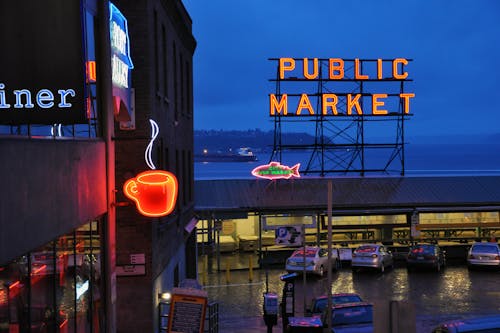
Seattle is famously polite, but locals are also well aware of the term “Seattle Nice”—a concept that often masks passive-aggressiveness. Because of this, phrases like “Interesting…” or “We should get coffee sometime” are frequently understood to mean the opposite of what they say. The tech and startup community in particular has started pushing back on this vague communication style, encouraging more directness. People who move there often joke about needing a translator for what seems like polite conversation.
Seattle’s culture has been slowly evolving as more transplants arrive from blunt cities like New York or Chicago. It’s not unusual for local HR departments to coach employees to avoid “soft yeses” that mean “no.” In social circles, saying “Let’s hang out soon” with no follow-up is now widely recognized as a throwaway line. So, culturally, there’s pressure to drop the ambiguity and get real.
3. New York City, New York
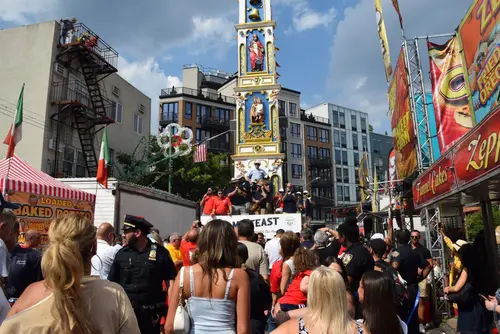
In New York, if you say “No offense, but…” you’d better brace yourself—because someone’s definitely taking offense. This is a city that thrives on direct communication, and people don’t have time for what they consider linguistic fluff. Passive-aggressive phrases aren’t just discouraged; they’re mocked. Whether in a work setting or at a bagel shop, being too subtle can cost you respect—or your place in line.
As a result, anyone using overly polite hedging language might get steamrolled. People here will say “Just say it already” if you’re circling your point too long. Offices often set a tone of brutal honesty, especially in fast-paced industries like finance or media. In short, if you’re passive-aggressive in NYC, no one’s going to read between your lines—they’re just going to ignore you.
4. San Francisco, California

In San Francisco’s startup-heavy culture, phrases like “Per my last email…” or “Just looping back on this…” are basically red flags. These terms have become so loaded with passive-aggressive undertones that many tech companies discourage them in internal communications. Slack channels are full of emoji-based tone checks, and there’s a growing norm around giving “radical candor.” People are expected to be transparent, even if it’s uncomfortable.
This culture shift is especially prevalent in companies embracing flat hierarchies and collaborative feedback models. Saying what you mean is viewed as more respectful than hinting at it. Even “Just a thought…” is getting side-eyed, because it often introduces an idea you clearly want acted on. In short, tech culture here is passive-aggressive phrase–averse for the sake of speed and clarity.
5. Austin, Texas
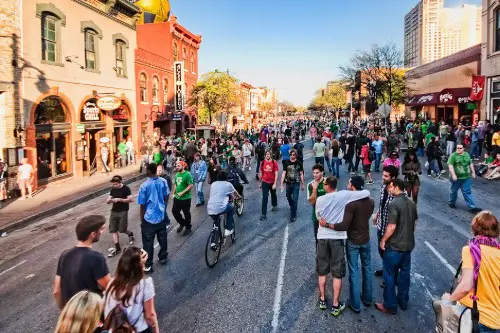
Austin might be laid-back, but in creative and entrepreneurial spaces, there’s a real disdain for fake niceties. People here appreciate directness with a dose of charm, and passive-aggressive language often comes across as disingenuous. Phrases like “It’s fine” or “You do you” are more likely to get a smirk than actual agreement. Especially in co-working and tech environments, clarity is king.
Austin’s culture encourages feedback with kindness, not coded sarcasm. Leaders at startups often coach their teams to avoid ambiguity in communication. Even in social spaces, beating around the bush isn’t the norm—it’s cooler to just say what you think. So while the city is friendly, it’s definitely not “passive” about passive-aggressiveness.
6. Boston, Massachusetts
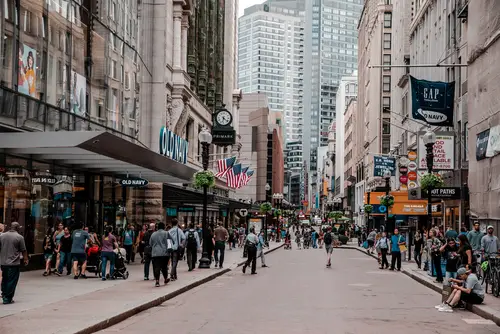
Boston is blunt by nature, and passive-aggressive language often gets interpreted as weakness or manipulation. Phrases like “Do whatever you want” or “I just think it’s funny that…” don’t go over well here. The locals prefer sarcasm that’s on-the-nose rather than veiled critiques. And if you’re not being direct, someone will probably call you out for it.
In professional settings, Boston leans toward the academic and analytical, but also honest. Passive-aggressive phrasing is seen as avoiding the issue, which clashes with the city’s tough, practical vibe. Even professors and managers tend to value clear argumentation over emotional subtext. If you’re going to be critical, you’d better mean it—and say it.
7. Minneapolis, Minnesota
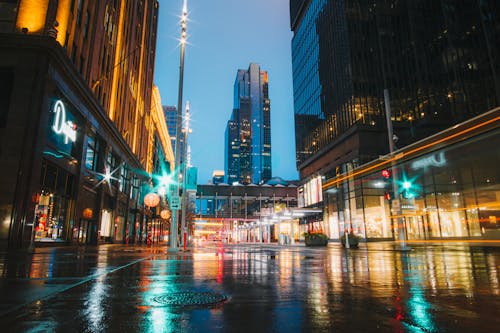
Minnesota Nice is legendary, but just like in Seattle, that niceness often carries an edge. In Minneapolis, the phrase “That’s different” can sometimes feel like a backhanded slap. Locals have become more self-aware of this dynamic, and cultural efforts—like leadership workshops and even comedy sketches—have tried to help people call it out. The idea is to keep the kindness but drop the subtext.
Many Minneapolis workplaces are making a push toward “Minnesota Real,” encouraging employees to be kind and clear. Passive-aggressive behavior, once brushed off as politeness, is increasingly seen as unproductive. People are encouraged to use “I” statements and speak more directly in conflict resolution. So while the state’s still nice, there’s less tolerance for niceness with an agenda.
8. Chicago, Illinois
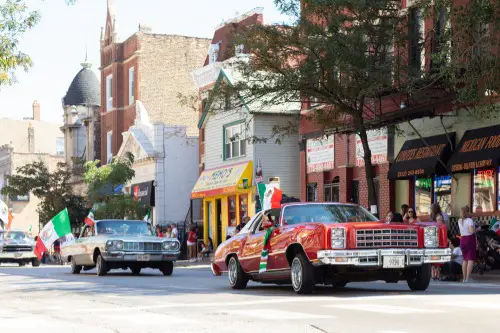
Chicagoans are friendly but direct—there’s little patience for verbal gymnastics. Phrases like “Not to be rude, but…” are considered red flags because they almost always precede something rude. People here would rather you just say it plainly and move on. The Midwestern work ethic often comes with a no-nonsense communication style.
Chicago’s blue-collar roots and civic pride favor straightforwardness over politeness for politeness’ sake. In meetings, there’s less tolerance for sugarcoating issues, and people often pride themselves on being “honest, not harsh.” Even local humor leans sarcastic but not passive-aggressive. If you’re being indirect, people are more likely to call your bluff than play along.
9. Denver, Colorado
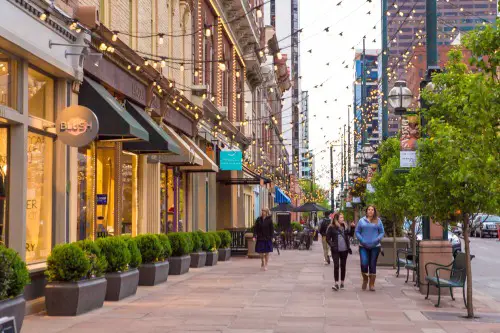
Denver’s vibe is easygoing, but its growing professional class has little time for murky communication. In coworking spaces and startup hubs, people often poke fun at phrases like “If you don’t mind…” or “Not sure if this makes sense…” because they dilute otherwise solid points. Directness is increasingly encouraged as the city grows more competitive. People are realizing that saying what you mean doesn’t have to be confrontational.
In fact, Denver’s outdoorsy culture plays a role in this shift—there’s value in straightforwardness, like calling out, “Hey, there’s a bear on the trail,” instead of whispering it. Meetings are often informal, but there’s still an expectation to cut through the niceties. Even neighborhood Facebook groups will roast overly polite complaints as “passive-aggressive poetry.” So, if you’re hinting instead of speaking plainly, expect a few eye rolls.
10. Los Angeles, California
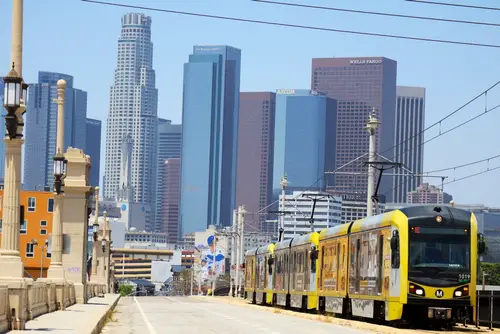
L.A. may be the land of surface-level pleasantries, but that’s exactly why passive-aggressive phrases are under scrutiny. In industries like entertainment and wellness, phrases such as “I’m just coming from a place of love…” are often followed by backhanded advice. Because of that, there’s a growing awareness around toxic positivity and fake support. People have started calling out this behavior for what it is: dodging conflict with a smile.
Culturally, there’s a shift toward emotional intelligence and accountability. Podcasts, therapy-speak, and online discourse are encouraging Angelenos to ditch passive language in favor of honest communication. Influencers and leaders alike are promoting “authenticity” over veiled criticism. So, while the city still sparkles on the surface, more folks are asking, “Can we not pretend that’s helpful?”
11. Philadelphia, Pennsylvania

Philly doesn’t have time for sugarcoating. This city is famous for its directness and—let’s be honest—its creative insults. If you say something like “Do whatever you think is best,” people will likely ask, “Is that a threat?” The cultural tone favors blunt honesty, and anything passive-aggressive is just seen as cowardly.
Even in professional settings, people here often appreciate straight talk. It might not be sugar-sweet, but at least you know where you stand. Whether you’re talking to a neighbor, bartender, or boss, it’s better to be clear than clever. The city’s cultural aversion to passive-aggressive language isn’t written anywhere—but it’s deeply felt.
12. Atlanta, Georgia
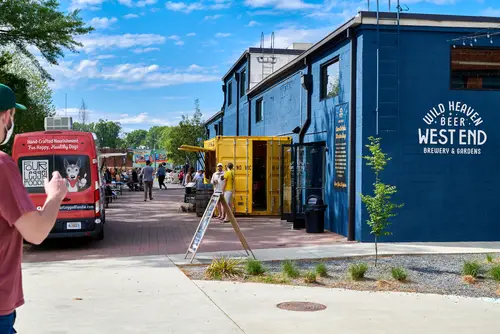
In the South, where manners are king, passive-aggressiveness can be a second language—but not so much in Atlanta. Phrases like “Bless your heart” or “Well, isn’t that special?” are being decoded in real time by younger generations. The city’s booming film and tech industries are helping shape a culture that prizes candor over coded speech. People are learning that politeness doesn’t have to mean avoidance.
Especially in diverse, collaborative work environments, there’s a strong push to be clear and direct. Passive-aggressive feedback is increasingly seen as confusing and unproductive. There’s also more awareness of how certain phrases can feel patronizing or dismissive. So, while Southern charm isn’t going anywhere, the way it’s expressed is evolving.
13. Washington, D.C.

In politics, language is everything—and in D.C., everyone knows how to read between the lines. But there’s also growing backlash against overly strategic or passive-aggressive phrasing. In campaign offices, think tanks, and government agencies, vague language is now associated with spin and deflection. Phrases like “With all due respect…” or “Let me be clear…” are often seen as red flags.
Because of this, staffers and officials are being coached to speak more plainly. Workshops on inclusive communication are emphasizing transparency over tone-policing. Even journalists are calling out these verbal tics in press briefings and interviews. In a city full of nuance, cutting through the noise has become the new currency.
14. Salt Lake City, Utah
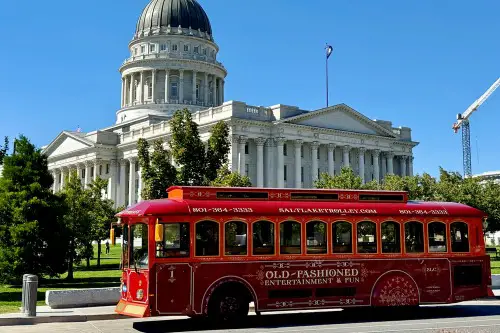
Salt Lake City blends religious influence, suburban norms, and growing corporate culture—and that’s created some tension around communication styles. Historically, phrases like “I just thought you should know…” were a polite way of delivering judgment. But younger professionals are calling out this coded language for what it is: emotional ambiguity masked as kindness. There’s a movement toward clean, clear messaging in both corporate and personal relationships.
In tech offices and modern Mormon spaces alike, passive-aggressive phrasing is being reexamined. Books, podcasts, and leadership trainings encourage direct communication as more respectful. It’s not about being rude—it’s about being honest with compassion. And culturally, that shift is gaining traction fast.
15. Raleigh, North Carolina
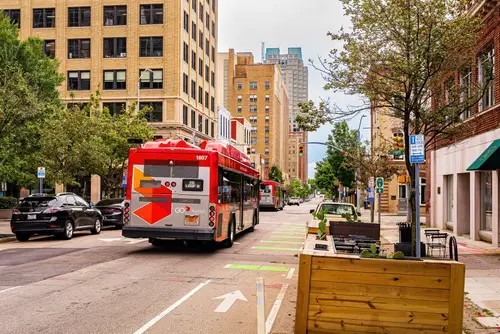
In Raleigh, a hub for both Southern tradition and East Coast transplants, passive-aggressive language is increasingly seen as a generational habit. Older expressions like “That’s… interesting” or “We’ll see” are now being met with, “So is that a no?” The younger workforce values clarity and doesn’t appreciate being left to guess. As startups and research institutions grow, so does the need for cleaner, conflict-resilient language.
Companies in the Research Triangle are pushing for assertiveness training and clear communication policies. Feedback loops in academia and business alike are ditching “friendly reminders” for real reminders. There’s still plenty of Southern politeness, but it comes with a clearer message. And as Raleigh evolves, so does its tolerance for vagueness.
16. Honolulu, Hawaii

In Honolulu, where harmony is culturally prized, passive-aggressiveness has traditionally been a quiet norm. But the shift toward more direct communication—especially among younger generations—is well underway. Phrases like “No worries if not…” or “Just thought I’d check in again…” are getting phased out in favor of clarity and shared expectations. There’s a cultural nuance here: being respectful without losing your voice.
In education, tourism, and local government, more emphasis is placed on assertive—but still humble—dialogue. Younger workers are leading the charge, pushing back on older habits of smiling through resentment. Even within families, there’s a slow shift toward open, honest communication. In Honolulu, it’s not about rejecting kindness—it’s about rejecting confusion.
This post 16 U.S. Cities That Practically Banned Common Phrases for Being “Too Passive-Aggressive” was first published on American Charm.


